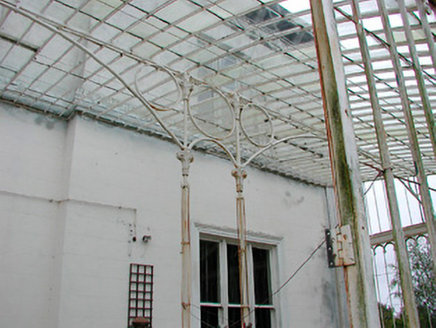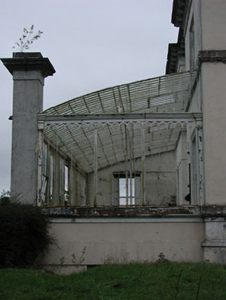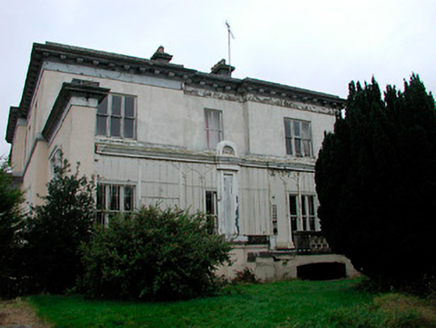Survey Data
Reg No
15318024
Rating
National
Categories of Special Interest
Architectural, Artistic, Technical
Previous Name
Middleton House
Original Use
Conservatory
In Use As
Conservatory
Date
1845 - 1855
Coordinates
235229, 242955
Date Recorded
28/09/2006
Date Updated
--/--/--
Description
Attached single-storey cast and wrought-iron conservatory attached to the south gable end of Middleton Park House (15318019), erected c.1850. Screened by a single-storey rubble limestone wall with a square-headed window to the west, the entrance front of the house. Curved roof with cast and wrought-iron glazing bars. Cast-iron supports and wrought-iron glazing bars over rendered plinth wall. Decorative round-headed cast-iron pillar to the centre of the south facing elevation and a Doric/Tuscan pillar to the east end of the south elevation, possibly originally a chimneystack. Set back from road in extensive mature grounds to the south of Castletown-Geoghegan.
Appraisal
A very fine Victorian ironwork conservatory associated with Middleton Park House (15318019), which is of high technical and artistic merit. This fine conservatory has been attributed to Richard Turner (1798-1881), the most important glasshouse designer in Ireland and possibly in Britain during the Victorian period. Turner was responsible for the is the Curvilinear Range at the National Botanic Gardens, Dublin, and the single-span roof over Lime Street Railway Station, Liverpool, among other noteworthy and ground breaking commissions at the time. Very few private conservatories by Turner are now still extant in Ireland, making this an important survival of national importance. Interestingly, Turner is also attributed with the designs of a conservatory at Ballynagall House (15401212), now in ruins to the north of Mullingar, a country house that very closely resembles the appearance of Middleton Park House (15318019). This elegant and delicate structure forms part of an interesting and important collection of structures associated with Middleton Park House and is an important element of the built heritage of Westmeath in its own rights.





